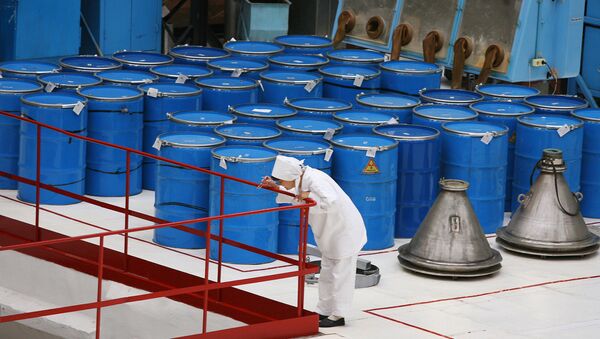WASHINGTON, October 2 (RIA Novosti) - Some 354 members of the United States House of Representatives have expressed their concern about Iran's unwillingness to cooperate with international nuclear inspectors in a letter to Secretary of State John Kerry on Thursday, after Iran refused to work with the United Nation's International Atomic Energy Agency (IAEA) inspectors.
"We are concerned that an agreement that accepts Iran's lack of transparency on this key issue would set the dangerous precedent that certain facilities and aspects of Iran's nuclear program can be declared off limits by Tehran, resulting in additional wide-ranging restrictions on IAEA inspectors, and making effective verification virtually impossible." said Chairman Royce and fellow House members in their letter to Kerry.
As the deadline approaches for the international community and Tehran to reach an agreement on Iran's nuclear program, lawmakers remain cautious but agree that a resolution is "essential to establishing a baseline regarding the status of the Iranian nuclear program."
"Accurate predictions of the period of time needed by Iran to assemble a weapon and assessments of Iran's compliance cannot be made without highly reliable information obtained from an unrestricted inspection and verification regime," the letter urged.
On September 24, the P5+1 group of international mediators, which includes Russia, the United States, the United Kingdom, France, China, and Germany, met with the Iranian delegation in New York to discuss the Iranian nuclear program, though failed to reach an agreement with Tehran on any of the key issues.
The West accuses Tehran of working on a nuclear weapon under the guise of a civilian nuclear program – claims repeatedly denied by Iranian authorities. At a meeting held in November 2013 in Geneva, Iran and the P5+1 group agreed to reach a long-term nuclear agreement by July 2014. The deadline was later moved to November 2014.



